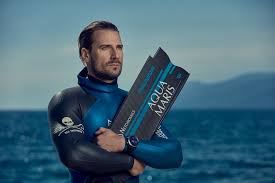Your lungs start burning after 30 seconds underwater. Most people tap out before hitting two minutes. Yet Croatian freediver Vitomir Maričić just held his breath for 29 minutes and 3 seconds on June 14, 2025, shattering the previous world record by nearly five minutes.
The secret? Pure oxygen pre-breathing—a protocol that saturates your bloodstream with nearly five times normal oxygen levels before submersion. Think of it as biological turbocharging, perfectly legal under Guinness World Records rules but fundamentally different from holding your breath after a normal inhale.
The Technology Behind the Feat
Ten minutes of pure oxygen creates superhuman baseline capacity
Maričić spent 10 minutes breathing pure oxygen before his attempt in Opatija, Croatia. This isn’t cheating—it’s a separate category that showcases how technology and human capability intersect. Without oxygen assistance, even elite freedivers max out around 11 minutes. The current unassisted record sits at 11 minutes, 35 seconds.
The Croatian’s personal best without oxygen assistance exceeds 10 minutes, ranking him seventh globally. That oxygen pre-breathing nearly tripled his performance reveals just how dramatically cutting-edge technologies can amplify human capability.
Mind Over Oxygen Debt
Mental endurance shifts dramatically after the 20-minute threshold
Here’s where it gets fascinating: Maričić reported that physical difficulty peaked early due to diaphragm contractions, but mental endurance actually became easier after 20 minutes. Your brain, running on that oxygen-rich blood supply, enters a different state entirely.
This mental shift mirrors what happens in other extreme endurance sports—that moment when suffering transforms into flow state. Except instead of running ultramarathons, you’re essentially becoming a human submarine.
Conservation Through Competition
Record attempts double as ocean awareness campaigns
The event wasn’t just about human limits—Maričić partnered with Sea Shepherd’s “Fit for the Ocean” initiative, using his record attempt to spotlight marine conservation. It’s become a trend in extreme sports: athletes leveraging their superhuman achievements to amplify environmental causes.
Witnessed by AIDA freediving judges and approximately 100 spectators at Opatija’s Bristol Hotel, the feat puts human endurance in perspective against marine life. Bottlenose dolphins typically hold their breath 8-10 minutes, while Cuvier’s beaked whales dive for hours. Technology helps us glimpse what evolution achieved naturally.
Human performance keeps pushing boundaries when biology meets smart protocols.




























